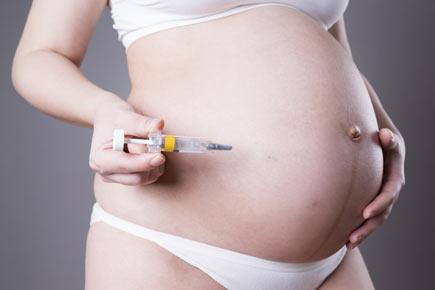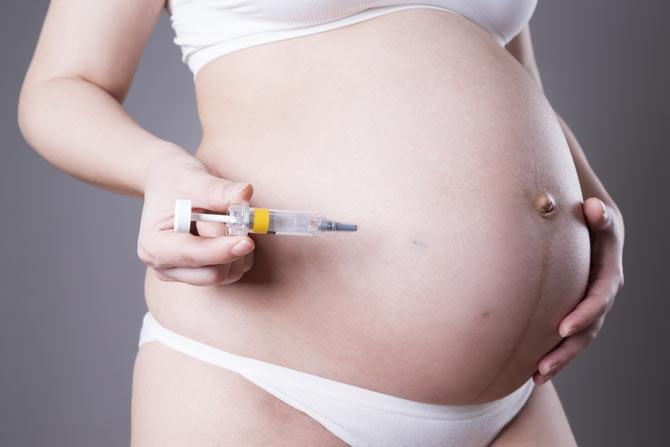Babies whose mothers received vaccination for a respiratory infection during their pregnancy had 91 percent lower risk of contracting the infection during the first two months, a study has showed


ADVERTISEMENT
New York: Babies whose mothers received vaccination for a respiratory infection during their pregnancy had 91 percent lower risk of contracting the infection during the first two months, a study has showed.
Pertussis, or whooping cough, is a respiratory infection caused by the bacteria bordetella pertussis that can affect persons of any age, but is particularly virulent and life-threatening in infants.
The primary immunisation of infants with DTaP vaccines -- that protects against three potentially life-threatening bacterial diseases: diphtheria, tetanus, and acellular pertussis (whooping cough) -- is recommended at two, four and six months of age.
"Maternal Tdap administered during pregnancy was highly effective at protecting infants against pertussis prior to their first dose of DTaP," said Nicola P. Klein, director at Kaiser Permanente in California.
The findings, reported in the journal Pediatrics, showed that maternal Tdap vaccination -- for adults -- administered during pregnancy also reduced pertussis risk by an estimated 69 per cent for the entire first year of life.
"Through the first year of life, maternal Tdap continued to provide protection without interfering with DTaP. It is reassuring that at every level of DTaP exposure, children with maternal Tdap are better protected," Klein said.
In the early months of life, before newborns can benefit from DTaP, they can receive some protection against pertussis from maternal antibodies transferred during pregnancy.
However, without pertussis vaccination during pregnancy, maternal pertussis antibodies in the infant decline substantially by six weeks of age, and become undetectable by about four months of age.
Pregnant women should be administered tdap, at any time during pregnancy, but preferably between 27 and 36 weeks gestation to maximise antibody transfer, according to recommendations from US Centres for Disease Control and Prevention.
 Subscribe today by clicking the link and stay updated with the latest news!" Click here!
Subscribe today by clicking the link and stay updated with the latest news!" Click here!






